'Being kidnapped by police has shaped my career'
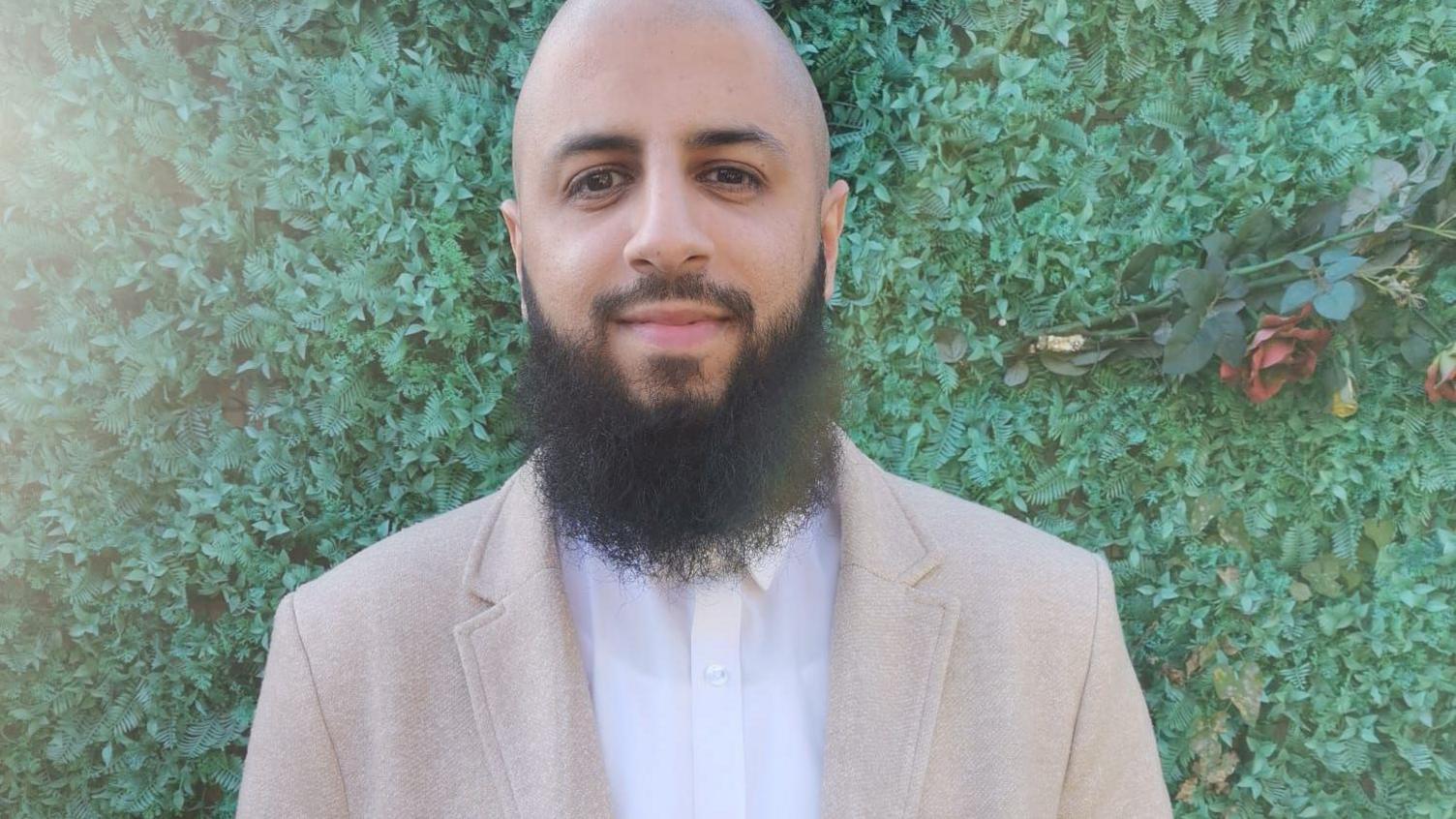
Nawaz said he had always "had a passion" and an interest in teaching
- Published
A man who claims he was kidnapped by police while on holiday in Pakistan when his father was framed for murder has become a university lecturer in policing.
Nawaz Hanif was held by the authorities in Mirpur for over a week in 2006 to force his father to hand himself in for a murder he didn't commit.
His dad, Mohammed, spent four years on death row after being accused of killing a neighbour - before he was eventually freed after being declared innocent by a judge.
Nawaz, who has joined Birmingham City University as a lecturer in criminology and policing, said he wanted to use his experience to teach the next generation how not to police.
'Unequivocally innocent'
Nawaz, from Birmingham, had travelled to his family's ancestral home in Pakistan-administered Kashmir to attend a family wedding.
After a neighbour was shot dead outside the house, the authorities suspected Nawaz's father, even though he had not been home at the time.
"He was framed for a murder of which he was unequivocally innocent," Nawaz told the BBC.
"Not only was he framed, but also my uncle, and two of my relatives were also framed, so all four of them were alleged to have committed this atrocity against an individual who did lose his life, but was actually killed by his own family."
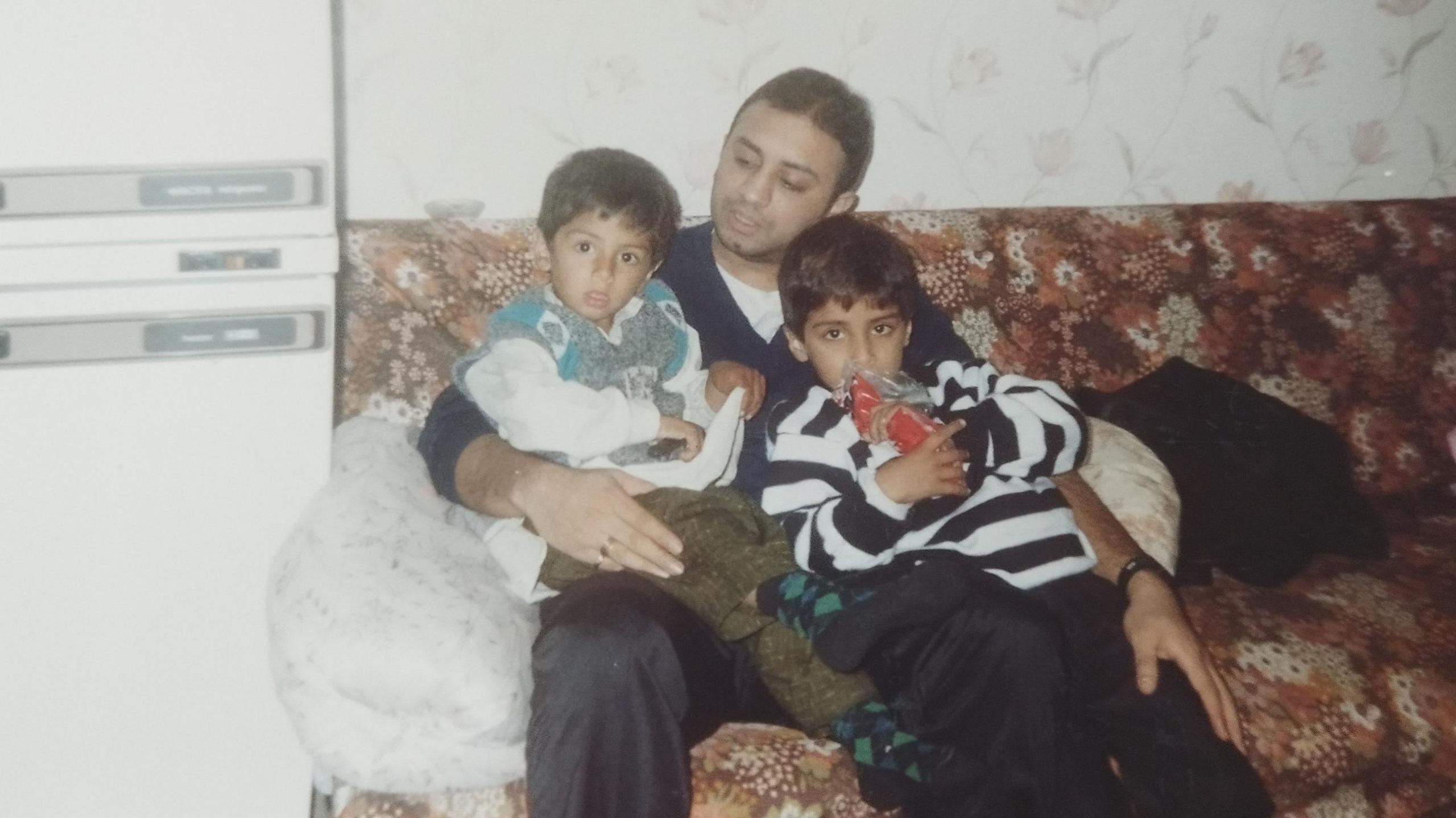
Nawaz Hanif, left, pictured as a child with his dad and older brother
After a previous disagreement with the neighbour’s family, Nawaz's father had gone to consult the region's Mayor on how to resolve it. It was there he learnt of the shooting and was advised to stay with relatives.
Back at the house, Nawaz, then 18, went outside after hearing gunshots and saw the body of a man he did not recognise.
"People were panicking, people were screaming, it was absolute chaos - we didn’t know if it was robbers or bandits, as they call them in Pakistan," he said.
Police turned up and "swarmed" the house, with one officer pulling Nawaz along by the wrist and rifling through his pockets.
The house was searched and Nawaz and his cousin were put into the back of a van and taken to a police station.
"I realised then that I hadn’t been arrested, I’d been kidnapped by the police in Pakistan," he added.
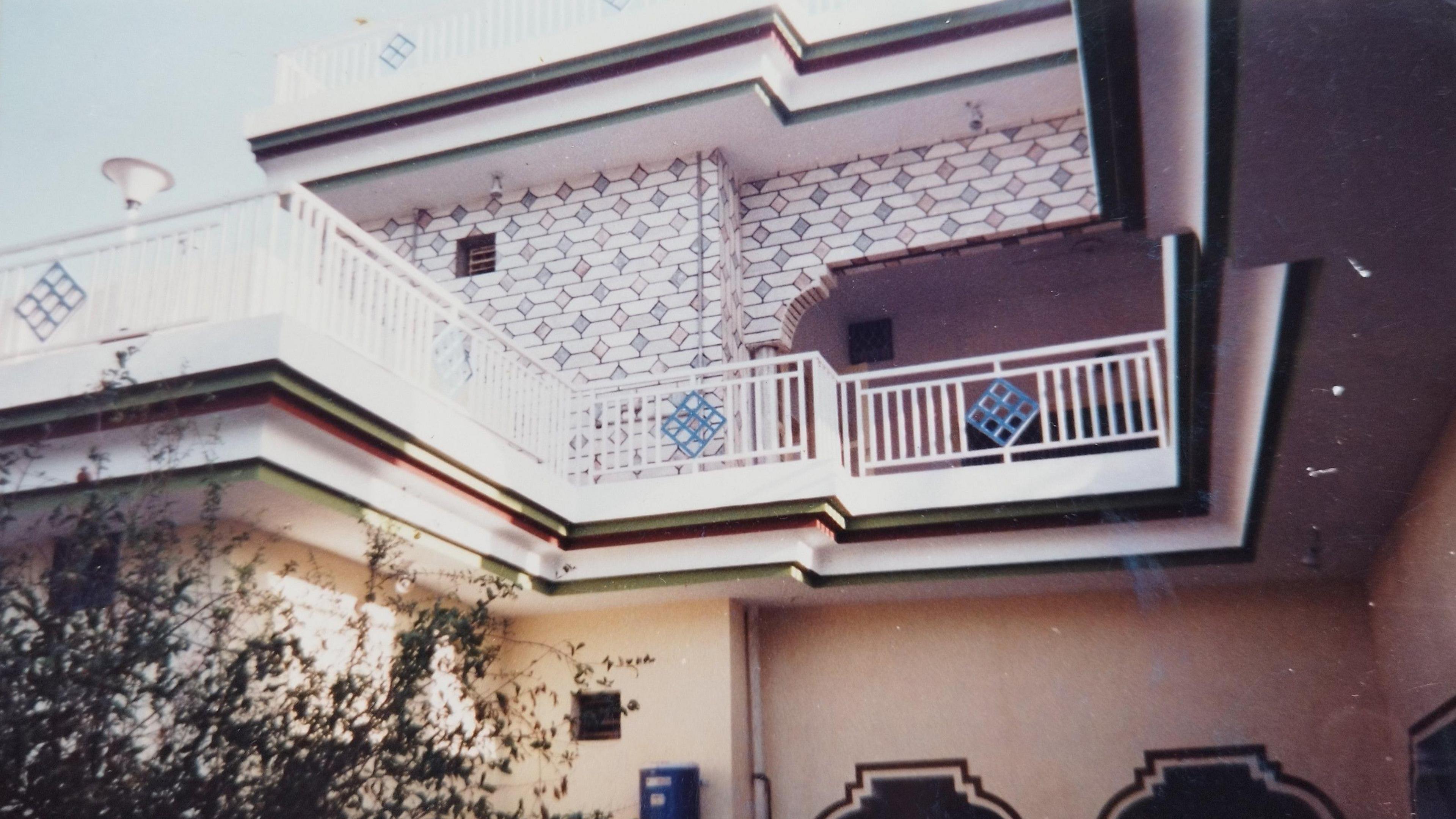
The family were forced to leave their home after Mohammad was detained
Nawaz spent the night "shivering with fear" in the officers' changing rooms.
For eight days, he remained at the station without contact with family, friends or access to a lawyer, after officers told him his dad was wanted for murder and until he arrived, "you're not going anywhere".
"I remember crying, breaking down," he said. "I just said my dad wouldn’t do that, my dad was such a shy and introverted character, he was a pacifist, he wouldn’t hit anyone if they punched him in the face."
The accusation was "beyond belief", he added.
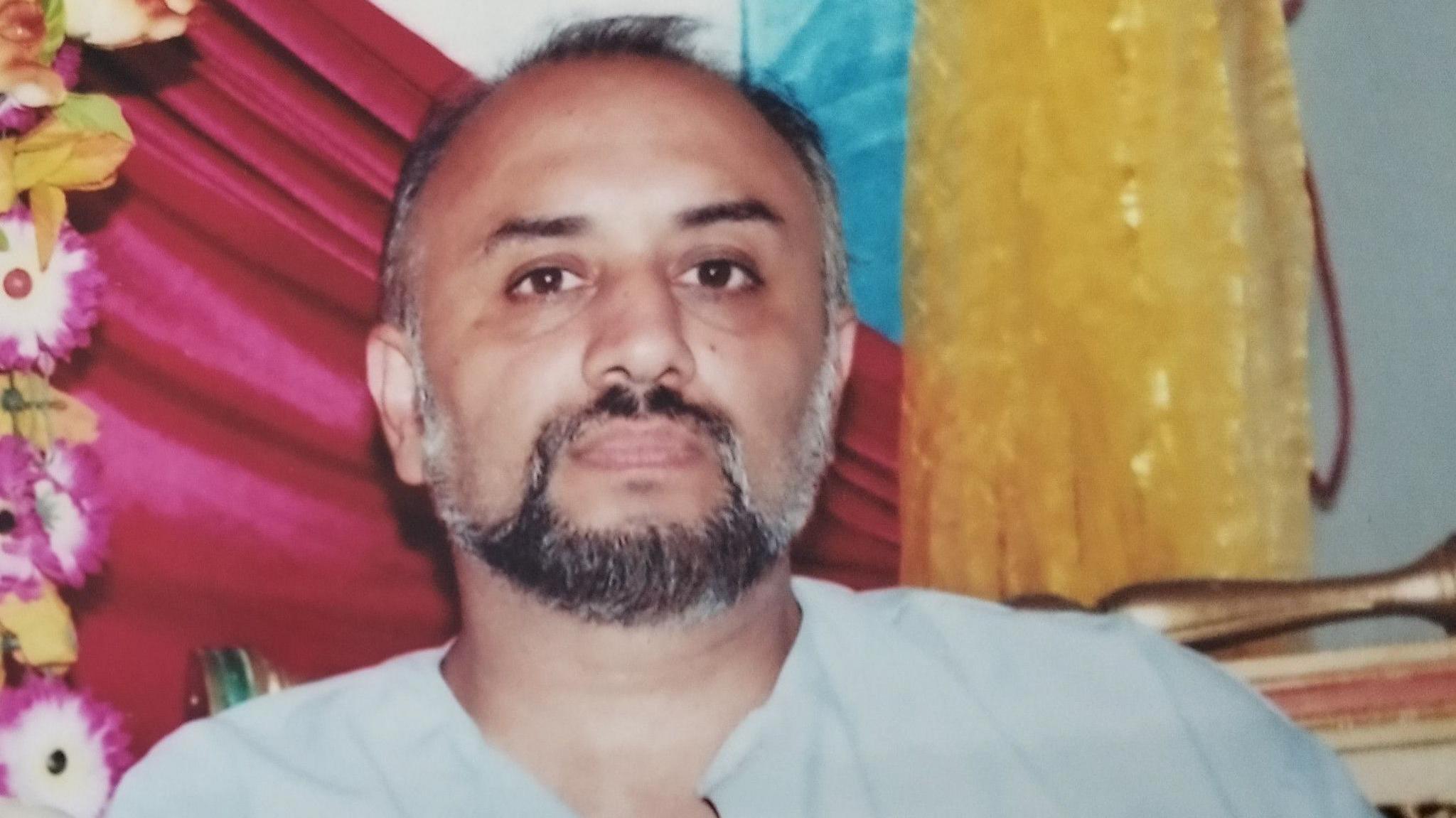
Mohammed Hanif, from Birmingham, was held in jail for four years
Eventually moved to an "overcrowded" cell, he claimed he witnessed people being dragged out of their cells, beaten up and "effectively tortured" into "confessing things they almost certainly hadn't done".
"The echoes would travel around so you could hear people being beaten up and I would just try and sleep through it.
"There was a bloke who was cuffed to the very top of the cell door," he said. "He was limp and unconscious and his arm was pale and yellow. And I realised they’d basically just cuffed him and left him there."
"Every time the door opened I remember being terrified."
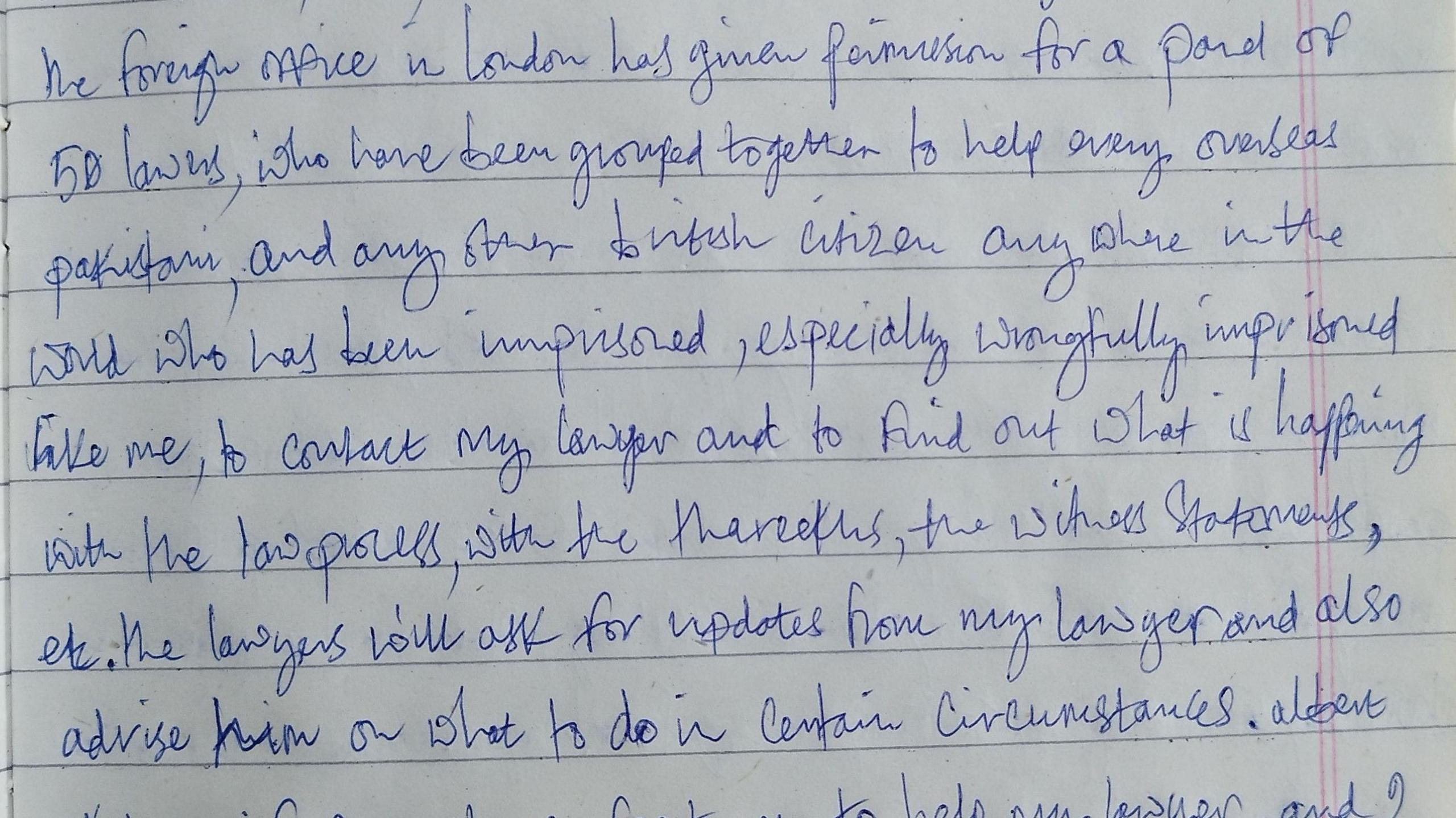
Mohammed wrote several journals about his experiences while he was incarcerated in Pakistan
Mohammed eventually presented himself to a police station so his son would be released.
After he was detained alongside two other relatives, Nawaz's mother and siblings were forced out of their house, which was looted soon after. It remains uninhabited to this day,
In Mirpur Central Jail while awaiting trial, Mohammed filled his time by writing journals while his family contacted Downing Street, MPs and even Buckingham Palace in an attempt to get him released.
"During that time my dad showed a lot of patience," Nawaz said. "Whenever we would get a chance to talk to him on the phone, he would tell us don’t worry it’s going to be OK."
He was eventually freed in 2010 after four years on remand, when a judge in Pakistan found him and his co-accused not guilty and acquitted them of all charges.
According to Nawaz, the dead man had been killed by a member of his own family over a land dispute.
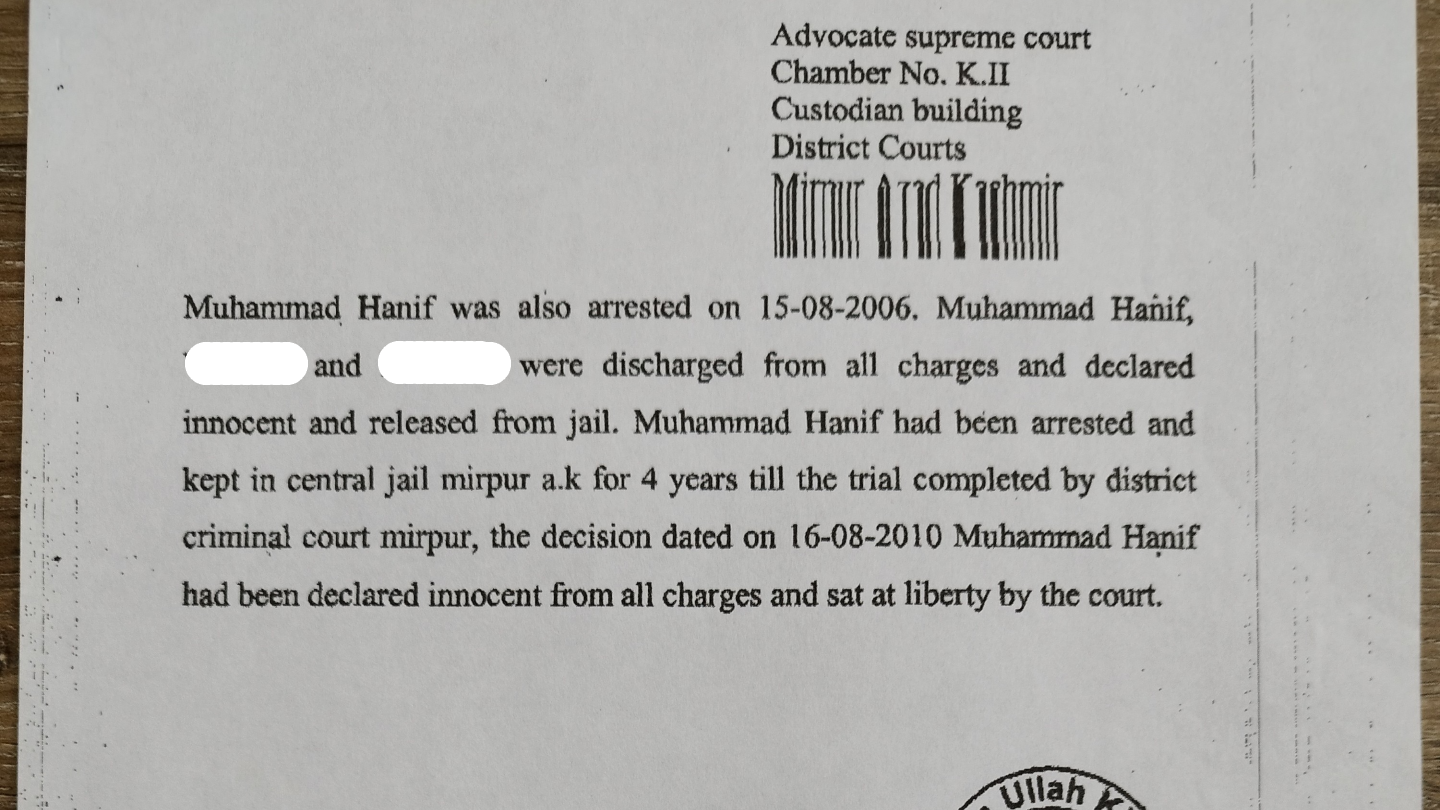
Mohammed Hanif was declared innocent of all charges and freed from Mirpur Central Jail in 2010
Nawaz had returned to England and joined the legal charity Reprieve as an investigator, helping other British citizens who were facing the death penalty abroad.
He went on to join West Midlands Police, where he spent almost a decade in their professional standards department investigating police misconduct and corruption.
After teaching on Staffordshire University's Police Constable Degree Apprenticeship programme, he started a new role as a lecturer at BCU in April.
Sarah Wood, deputy dean of the faculty of business, law and social science, said they were "absolutely thrilled" to have him in the role.
"He brings real experience and a sense of authenticity given what he has experienced through his life in his own family circumstances, but also in his professional roles," she said.
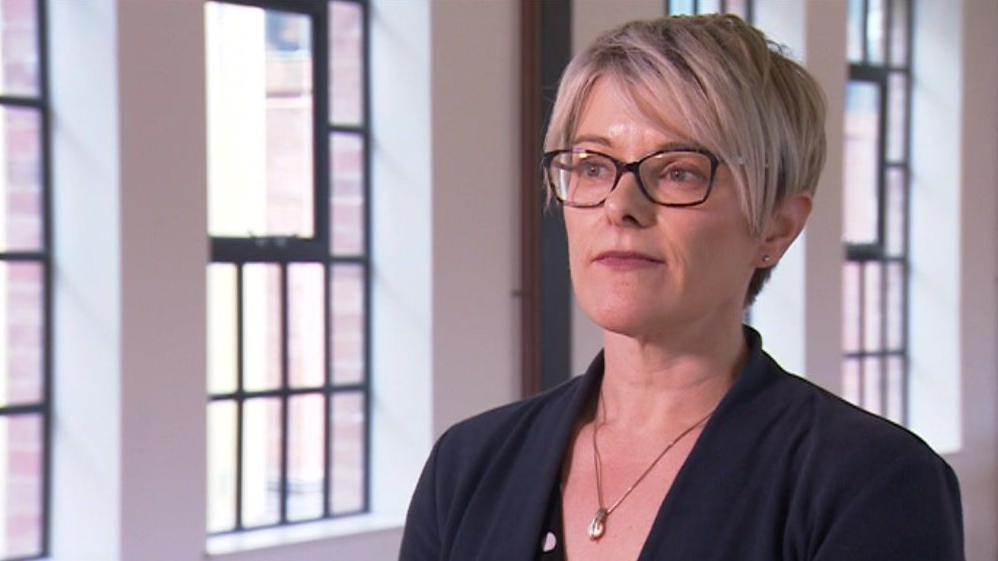
Sarah Wood, said Birmingham City University were "thrilled" Nawaz had been appointed to the role
For Nawaz, joining BCU to teach the next generation feels like he has come "full circle."
The future of policing in England and Wales is also bright following some high profile scandals, he added.
"I think there’s a kind of a fork in the road as to where we go, post-Sarah Everard, post-David Carrick, and I think there’s an opportunity to take policing somewhere where it hasn’t been before," Nawaz explained.
"To bring it out into the open and hopefully have a new generation of police officers that are willing to stand up for their values... [and] call out bad behaviour.
"I’m really glad to be here, it feels like I’ve come home."
Follow BBC West Midlands on Facebook, external, X,, external and Instagram, external, Send your story ideas to: newsonline.westmidlands@bbc.co.uk, external
Related topics
- Published2 December 2011
- Published22 August 2013